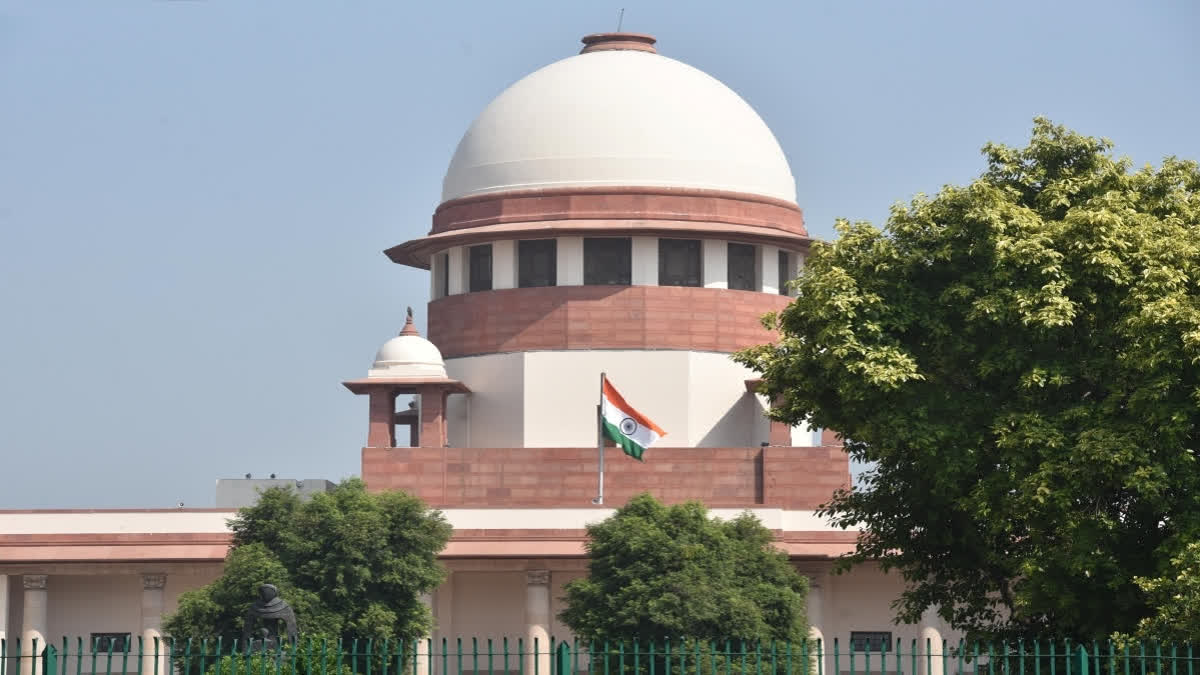New Delhi: The decision on the review petitions filed in the same-sex marriage case has been delayed after a Supreme Court judge Justice Sanjiv Khanna recused himself due to personal reasons.
On Wednesday, the apex court was scheduled to consider a batch of petitions seeking a review of its judgment delivered in October 2023, which refused to grant legal recognition to same-sex couples and said that only the Parliament and state legislatures can validate their marital unions.
A five-judge bench led by Chief Justice of India Dhananjaya Y Chandrachud, and comprising Justices Sanjiv Khanna, Hima Kohli, BV Nagarathna, and PS Narasimha, was scheduled to consider in chambers the review petitions against the 2023 verdict. Justices Khanna and Nagarathna have replaced the retired members of the previous bench – Justices Sanjay Kishan Kaul and Ravindra Bhat.
It is learnt that Justice Khanna’s recusal has left the bench without the requisite number of judges, which would lead to a delay in a decision on the review petitions. CJI Chandrachud will now have to reconstitute the bench.
On Tuesday, the Supreme Court was surprised at petitioners’ request to grant open court hearing on review petitions against its October 2023 verdict, which declined to recognise the right of same-sex couples to enter into marriages or have civil unions.
Senior advocates A M Singhvi and N K Kaul requested a three-judge bench led by Chief Justice of India D Y Chandrachud to hear the review petitions in the open court. The counsel said the court may consider that in public interest this hearing could happen in open court. "Kindly have it in open court," said Singhvi.
Another senior counsel attempted to begin submissions regarding the petitions. "Are you arguing a review now? Review is in the chambers…", said the CJI. Singhvi said we are only making a request to the court. The CJI seemed surprised with the request made by senior advocates. “Constitution bench reviews…”, said the CJI indicating that the review petitions usually are considered in chambers. Review petitions, whether to be heard in open court, is also decided by judges' in the chamber sans lawyers.
The five-judge constitution bench headed by CJI Chandrachud had delivered four separate verdicts on a batch of 21 petitions seeking legal sanction for same-sex marriages. All five judges were unanimous in refusing to accord legal recognition to same-sex marriage under the Special Marriage Act and observed it was within Parliament's ambit to change the law for validating such union.
While the CJI had written a separate 247-page verdict, Justice Sanjay Kishan Kaul (since retired) had penned a 17-page judgement in which he broadly agreed with Justice Chandrachud's views.
Justice S Ravindra Bhat (since retired), who authored an 89-page judgement for himself and Justice Kohli, had disagreed with certain conclusions arrived at by the CJI including on the applicability of adoption rules for queer couples. Justice Narasimha had said in his 13-page verdict that he was in complete agreement with the reasoning given and conclusions arrived at by Justice Bhat.
The judges were unanimous in holding that queerness is a natural phenomenon and not "urban or elite" occurrence. In his judgement, the CJI had recorded the assurance by Solicitor General Tushar Mehta that the Centre will constitute a committee chaired by the cabinet secretary for the purpose of defining and elucidating the scope of entitlements of queer couples who are in a union.
The LGBTQIA++ rights activists, who had won a major legal battle in 2018 in the Supreme Court which decriminalised consensual gay sex, had moved the apex court seeking validation of same-sex marriage and consequential reliefs such as rights to adoption, enrolment as parents in schools, opening of bank accounts and availing succession and insurance benefits.
Some of the petitioners had urged the apex court to use its plenary power, "prestige and moral authority" to push the society to acknowledge such a union which would ensure LGBTQIA++ lead a "dignified" life like heterosexuals. LGBTQIA++ stands for lesbian, gay, bisexual, transgender, queer, questioning, intersex, pansexual, two-spirit, asexual and allied persons.



